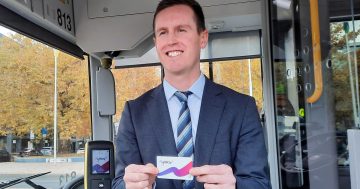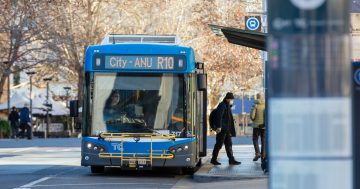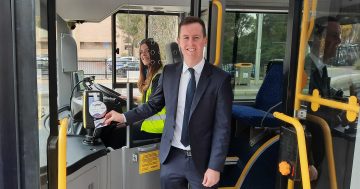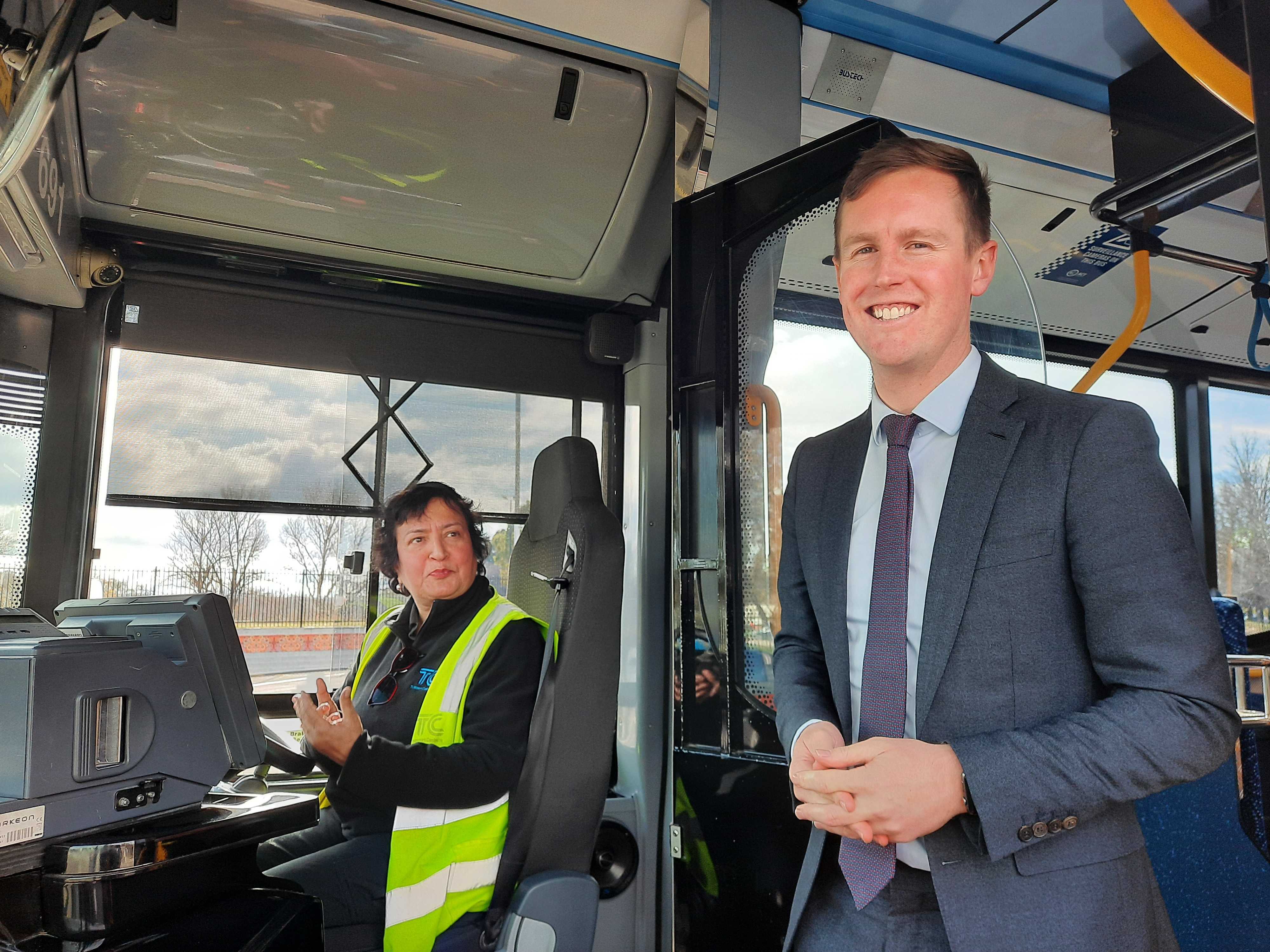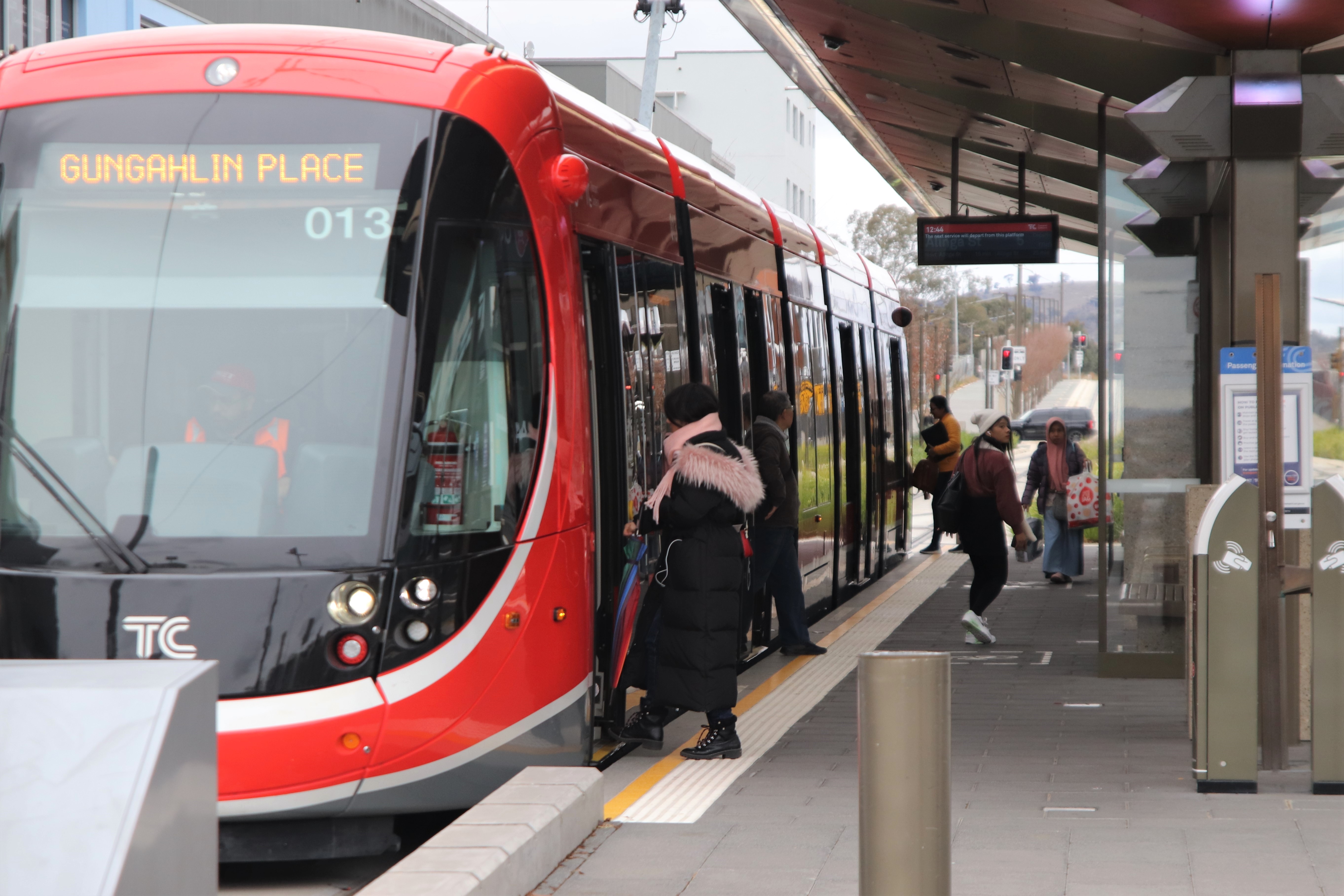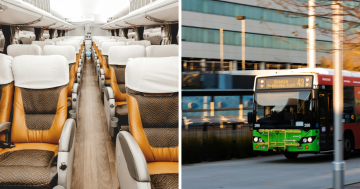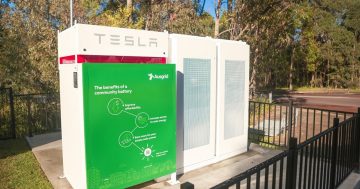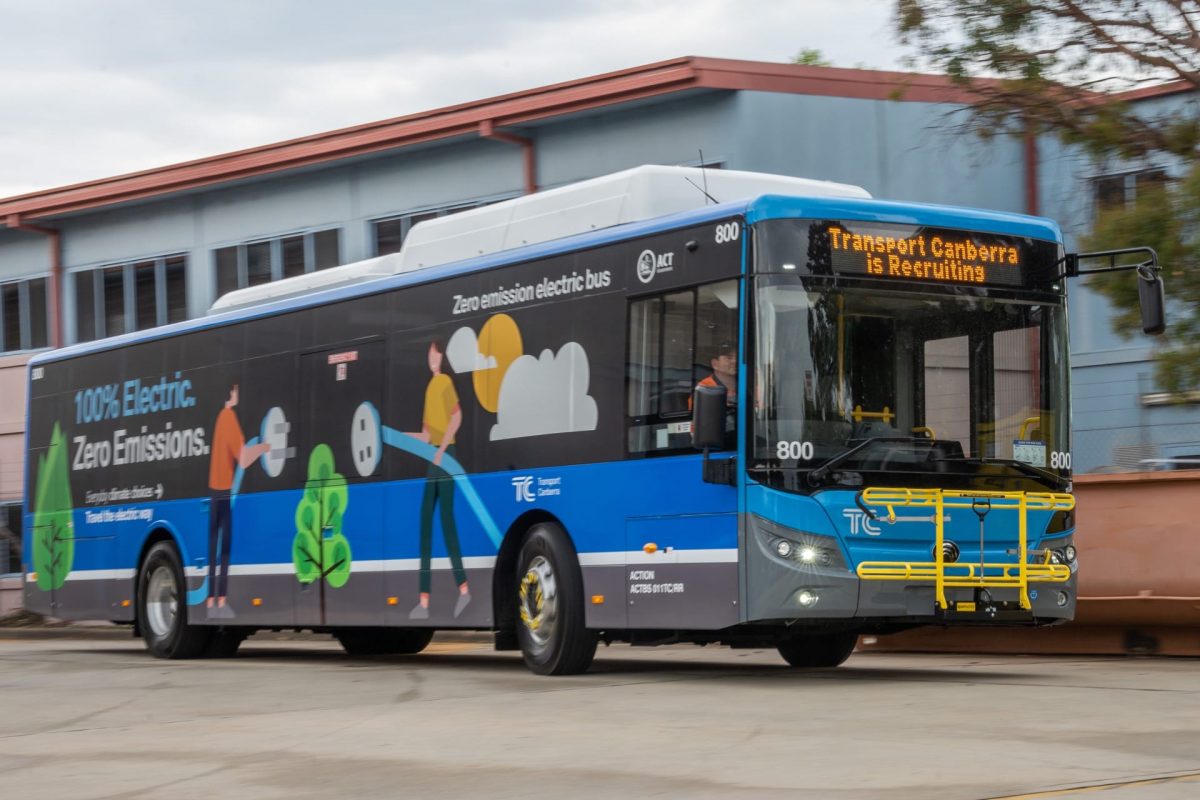
Canberra’s first Yutong electric bus in January. There are 90 more on the way. Photo: ACT Government.
The electrification of Canberra’s public transport network will gather pace over the next three years, with the ACT Government announcing the successful procurement of new zero-emissions buses.
The government has signed a $83.5 million contract with Vehicle Dealers International (VDI) to buy 90 Yutong ‘E12’ battery electric buses and is in talks with Custom Denning to procure four ‘Element’ battery electric buses and charging infrastructure.
Minister for Transport and City Services Chris Steel said this would increase the ACT fleet to 106 zero-emission buses over the next three years, counting the 12 that are already in service on a five-year lease.
“These new buses will deliver the biggest change in technology for Canberra’s bus fleet in decades as part of our Zero-Emission Transition Plan for Transport Canberra,” Mr Steel said.
“The ACT is a leader in zero-emissions transport with the largest fleet of electric buses delivered per capita in our nation. This will transition more than 20 per cent of our bus fleet to zero-emission technology, with the rest of the fleet transitioning by 2040 or earlier.”
Transport Canberra expects to receive the first of the 94 electric buses from late 2023. These will be progressively delivered through to 2026.
“The new electric buses will initially replace ageing diesel and CNG [compressed natural gas] buses, but will also grow the fleet overall to service our growing city,” Mr Steel.
VDI and Custom Bus Group were chosen as the preferred providers because they demonstrated they could meet the full requirements of the tender process, including value for money, delivery schedule and bus specifications, such as passengers loads and operating times.
“Our first 12 electric buses have been successfully delivering services every day right across the Transport Canberra network. We are confident that the new zero-emission buses will deliver the same reliable, clean, quiet and comfortable services,” Mr Steel said.
The buses are powered by lithium-ion phosphate batteries. They can operate for a maximum of 16 hours on a single charge, and they can fit 65 people with 45 seated, including the driver, and 20 standing.
Today’s announcement follows work to upgrade grid infrastructure to supply the new Woden and existing Tuggeranong bus depots with the electrical capacity to charge up to 300 electric buses and investments in skills to support the transition.
“We’ve always said that purchasing zero-emission buses is only part of the story,” Mr Steel said.
“The ACT Government is supporting workers to get the skills to work on electric buses and building the grid and charging infrastructure necessary to make the transition successful.
“This is another step in realising a better public transport system for Canberra with the expansion of our light rail system under construction, new electric buses servicing the suburbs and the new MyWay+ ticketing system in design ahead of its rollout.”
Transport Canberra says the existing Yutong E12 battery electric buses average 300 kilometres a weekday across an average 11-hour day, with the longest day reaching 14.8 hours.
The average battery charge remaining at the end of a shift is about 25-30 per cent.
They have travelled over 129,000 kilometres across Canberra in their first five months of operation.
All diesel buses will be phased out by 2040; hydrogen fuel cell buses remain in the mix as replacements.
Original Article published by Ian Bushnell on Riotact.




